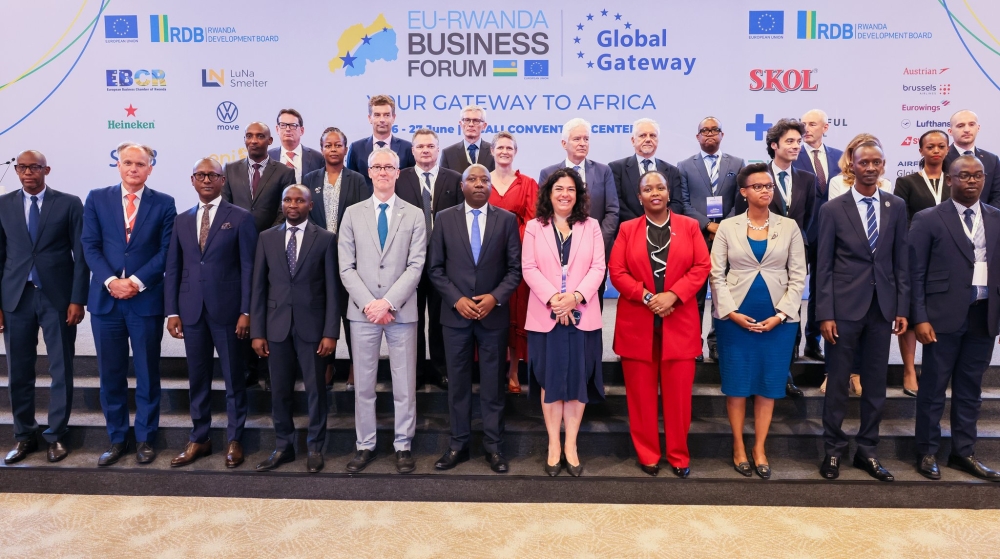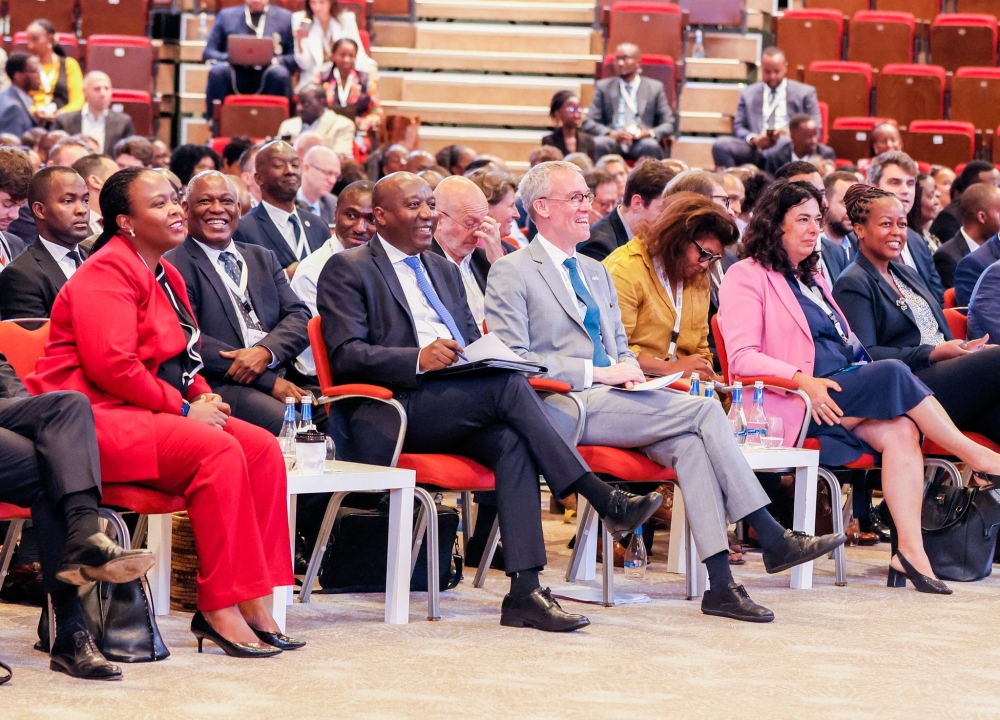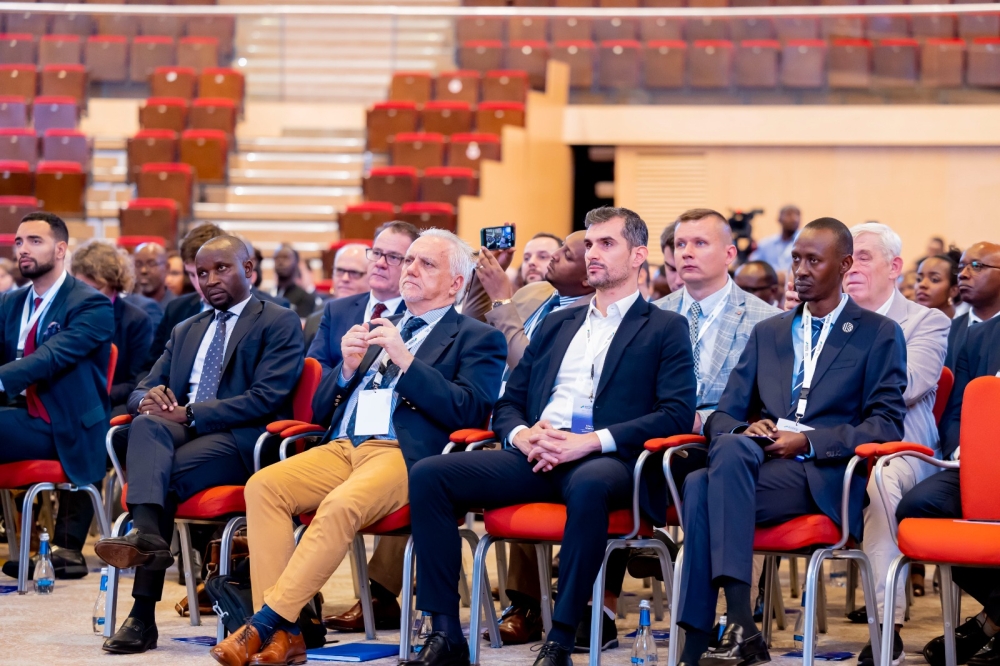Prime Minister of Rwanda, Dr. Edouard Ngirente delivers remarks during a two-day inaugural EU-Rwanda Business Forum’ in Kigali on Monday, June 26.
Dr. Edouard Ngirente has emphasized the need for Rwanda to establish preferential trade agreements with the European Union (EU) in order to stimulate economic growth.
He said this on Monday, June 26 during a two-day inaugural EU-Rwanda Business Forum, themed ‘Rwanda – Your Gateway to Africa,’ which brought together over 600 participants, including industry leaders from the private sector, diplomats, and officials from Rwanda and Europe.
Europe has become the largest source of investment for Rwanda, with over $870 million invested in key sectors such as construction, manufacturing, real estate activities, agriculture, mining, and ICT over the past five years.
According to Ngirente, these investments have significantly improved livelihoods by creating jobs and empowering the private sector, which has become a crucial driver of economic growth. They have also fostered innovation, entrepreneurship, and technological advancements, positioning Rwanda as a regional hub for innovation and trade.
“As we move forward, it is essential to develop and promote preferential trade arrangements with the EU, a key partner, as well as facilitate the movement of people,” he said.
He further noted that the partnership between the EU and Rwanda is not merely a business transaction, but also a symbol of shared values, mutual respect, and a commitment to building a better future.
Clare Akamanzi, CEO of the Rwanda Development Board (RDB), presented investment opportunities in the country and highlighted several incentives put in place to create a favorable environment for attracting foreign direct investments (FDIs) to Rwanda.
Delegates follow a presentation during the forum , themed ‘Rwanda – Your Gateway to Africa.
She mentioned the ease of doing business facilitated by the RDB’s one-stop shop, which centralizes investment information and provides up to 200 licenses from a single location. Additionally, tax incentives on imports and excise duties in various sectors of the economy, among other regulatory frameworks, support investor relations in the country.
Akamanzi also expressed the country’s interest in attracting investments in key priority sectors such as construction, manufacturing, agro-processing, and partnering in initiatives like the Kigali Innovation City and Gabiro agribusiness hub phase 2.
Over the past three years, the Kigali International Finance Centre (KIFC) has successfully registered 22 European businesses in Rwanda, further solidifying Rwanda’s status as an investment destination hub in Africa.
Koen Doens, EU Director General for International Partnerships, acknowledged that Africa presents immense potential for global trade and partnership opportunities. He commended Rwanda for positioning itself as a gateway to the region.
Doens emphasised the importance of diversifying investments, as previous economic shocks like the coronavirus pandemic and the Russia-Ukraine war have disrupted supply chains and shaken the global economy due to the concentration of investments in specific regions.
Belen Calvo Uyarra, Ambassador of the EU to Rwanda, said that this business engagement between both parties marks the beginning of an ongoing and fruitful relationship. She expressed the expectation of further strengthening economic ties and contributing to Rwanda’s development driven by the private sector.
“It is my sincere hope that we are laying the foundation for thriving investments,” she said.
The inaugural forum has brought together over 600 participants, including industry leaders from the private sector, diplomats, and officials from Rwanda and Europe.



